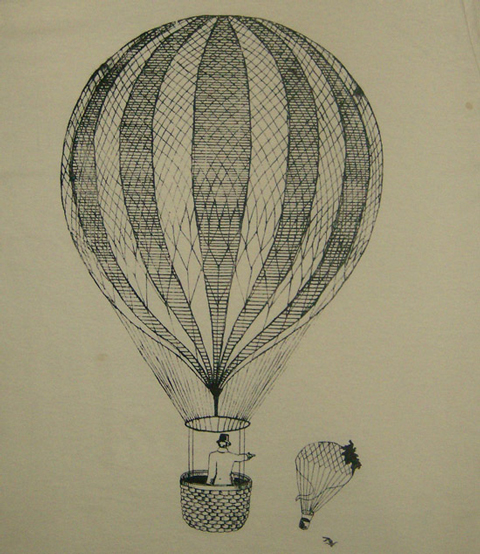
The most unusual duel in history took place in Paris, in 1808, when two gentlemen, Monsieur de Grandpre and Monsieur le Pique, discovered by accident that they were enjoying the favours of the same lady, a certain Mademoiselle Tirevit.
The gentlemen concluded, via their seconds, that the universe wasn’t big enough for the both of them. There was nothing for it but that they must fight a duel.
Here they diverged from the standard script. It was agreed by all that the duel be fought from identical hot air balloons, and that the weapon of choice should be a blunderbuss.
One would have thought that in the ensuing month, during which identical balloons were constructed, that cooler heads might have prevailed, but apparently there were none. The balloons were duly delivered and the principals, their seconds and “an immense concourse of spectators” met in le Jardin des Tuileries on the 22nd of June. If you’ve ever visited Paris, you’ve probably walked across where this happened.
I can understand M. de Grandpre and M. le Pique getting into their balloon baskets, but I must question the mental stability of their seconds, who clambered in after their principals, in order to share their fate. The ropes were cut simultaneously and the two balloons rose into the air, to an estimated height of half a mile. The balloons at this stage were separated by about 80 yards.
M. le Pique had the honour of firing first. He brought up his blunderbuss, aimed carefully at the balloon above M. de Grandpre’s head, and fired.
He missed completely.
M. le Pique’s second cannot have been pleased at this turn of events. But there was no backing out now.
De Grandpre raised his blunderbuss. He fired, grievously wounding le Pique’s balloon, which plummeted to the earth. Le Pique and his second were killed on impact. (“Dashed to pieces” in the original account.)
Honour satisfied, de Grandpre continued his journey until he landed some seven leagues distant. History does not record the outcome of the relationship between de Grandpre and Mademoiselle.
If you think I’m making this up, it’s all recorded in The Book Of Days, by Robert Chalmers, published 1863, page 809 of volume 1.
* * *
—This post is part of a new series written by Soho Crime author Gary Corby. Corby writes historical mysteries set in the world of classical Greece. He’s written The Pericles Commission, The Ionia Sanction, Sacred Games, and, most recently, The Marathon Conspiracy.
